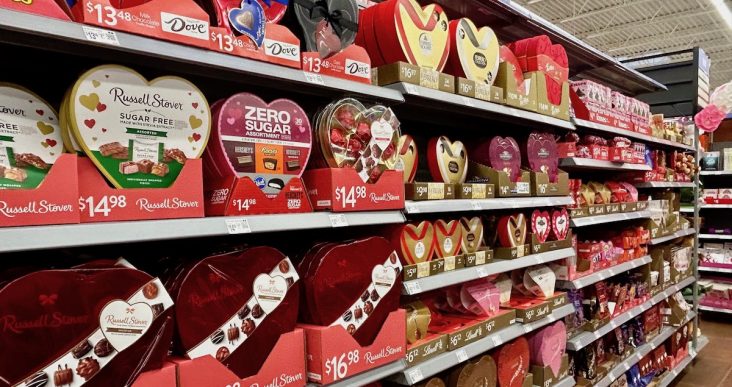Valentine’s Day spending estimated to total $25.8 billion
by February 5, 2024 6:06 pm 702 views

Retailers and restaurants are ready to cash in on an expected $25.8 billion for Valentine’s Day spending this year, including $14.2 billion consumers will spend on significant others, according to the National Retail Federation (NRF).
The total spending estimate is a bit less than the $25.9 billion reported in 2023. The trade group said 53% of consumers plan to celebrate the holiday this year, down from 57% in 2023. The survey conducted by Prosper Insights found 63% of consumers between the ages of 25-to-34 plan to celebrate this year, more than any other age group.
Consumers expect to spend $185.81 each on average, nearly $8 more than the average Valentine’s Day spending over the last five years, according to the survey.
“Retailers are ready to help customers this Valentine’s Day with meaningful and memorable gifts,” NRF President and CEO Matthew Shay said. “With consumers prioritizing their spouse or significant other this year, retailers expect to see a shift in spending for certain gifting categories.”
The top gifts include candy as 57% of consumers plan to give confectionary gifts. A large box of candy, including sugar-free varieties can be purchased for under $20. Greeting cards are also an expected to be a top seller with 40% of consumers making this purchase. Flowers are also popular with 39% planning to surprise a loved one with a bouquet of fresh flowers. A dozen roses delivered on Valentine’s Day from 1-800-Flowers will cost just under $100 this year. The total spend on flowers is estimated at $2.6 billion, up 3% year over.
About one-third (32%) of consumers plan to go out on Valentine’s Day for dinner and other activities for a total spend of $4.9 billion, which would be up 2% year over year. Consumers will likely see higher menu prices at restaurants compared with 2023. The National Restaurant Association reports menu prices rose 8.4% in 2022 and another 5.2% in 2023 for a two-year increase of 13.6%.
Another 22% said they will purchase jewelry for what could be a record spend of $6.4 billion, and 21% will purchase clothes for an estimated total spend of $3 billion, while 19% will rely on gift cards.
“While shoppers may be spending the most on jewelry, overall, the most popular gifts are the classics – candy and greeting cards,” said Phil Rist, head of strategy at Prosper Insights & Analytics.
He said consumers are also being more deliberate with their spending compared to a year ago when they sought to purchase gifts for pets, co-workers and friends. This year the consumer gift-giving has shifted to spouses or significant others.
Bankrate.com noted that expressing undying love for a sweetheart on Valentine’s Day doesn’t have to break the bank. The financial guidance website suggests consumers who want to go out for the evening take advantage of gift cards they might have received for Christmas, noting that it’s easy to forget about them. Bankrate reports 47% of U.S. adults have at least one unused gift card with an average value of $187 per person.
Other money-saving suggestions include sticking to budget, redeeming credit card rewards to help pay for the purchase, celebrating at home with a romantic dinner cooked in-house, or getting takeout and making mixed drinks at home.
